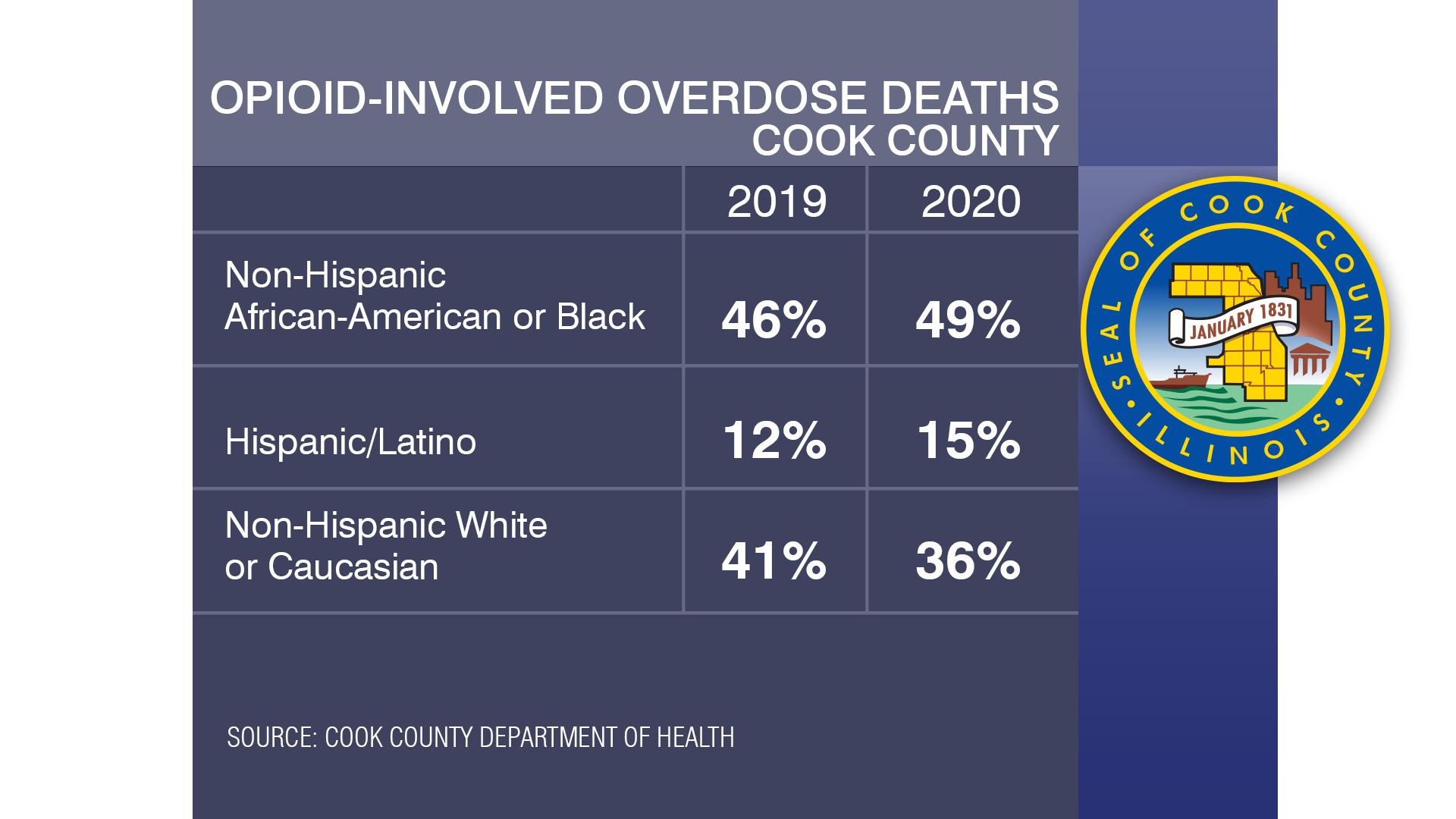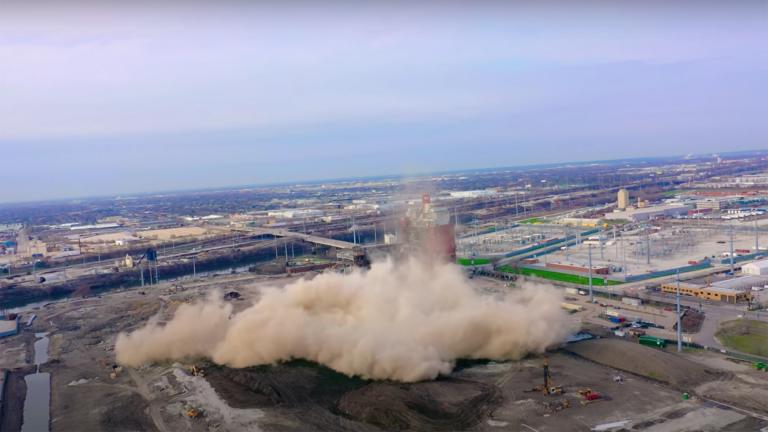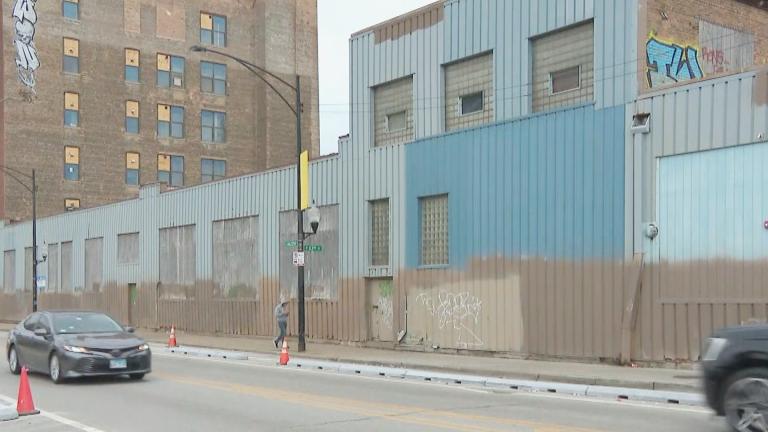Opioid-related overdoses in Cook County increased by more than 40% last year, according to public health officials. While this spike started in December 2019 — before COVID-19 was widespread — the pandemic accelerated the trend.
The Cook County Department of Public Health has recorded 512 opioid-involved overdoses so far this year. Dr. Kiran Joshi, senior medical officer and co-lead at the department, said his team is hearing that fentanyl, a powerful synthetic opioid, has been the cause of many of those overdoses.
Last year’s increase affected residents in Cook County differently depending on race and ethnicity. Total overdose deaths for non-Hispanic white/Caucasian individuals decreased from 2019-2020, while total overdose deaths for non-Hispanic African American/Black and Hispanic/Latino individuals increased.

Joshi said it’s not clear what’s causing the disparity, but it’s important to consider access to clinical services and assessments for substance use disorder.
Cheryl Hull, the deputy director of the Chicago Recovery Alliance, said the realities of providing services to clients became horrific as the numbers increased.
The Chicago Recovery Alliance distributes educational materials and other resources throught the city, including Narcan, which is used to rapidly reverse an overdose.
“People come to the van and tell us, ‘You know that lady that used to come to the van, this short lady, such and such?’” Hull said. “‘Oh, she overdosed last night, she’s dead.’”
Hull said that lately, more people are coming to the van for services, especially since the organization got the nasal spray version of Narcan. The device is also available in the form of a shot, but many people are reluctant to use needles. But Hull say it’s a valuable intervention in any form.
“If we weren’t there, more people would die from HIV, hepatitis C, and overdosing and we’ve saved a lot of people from being dead,” Hull said. “If people die, they cannot recover.”




